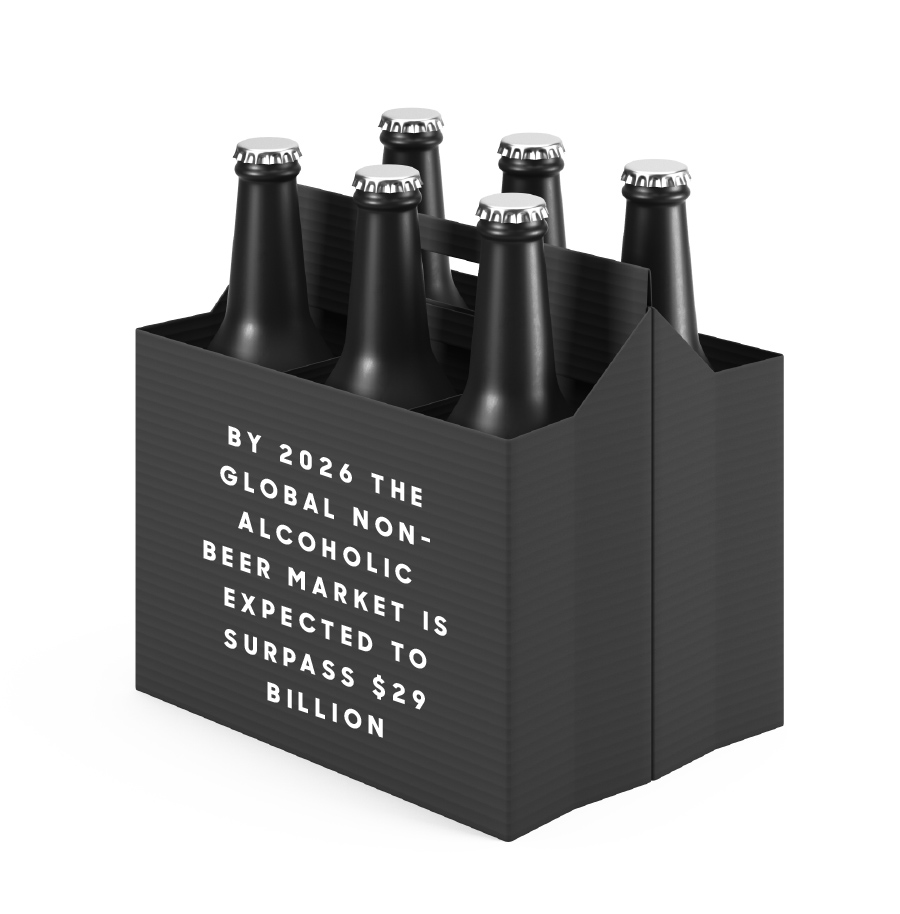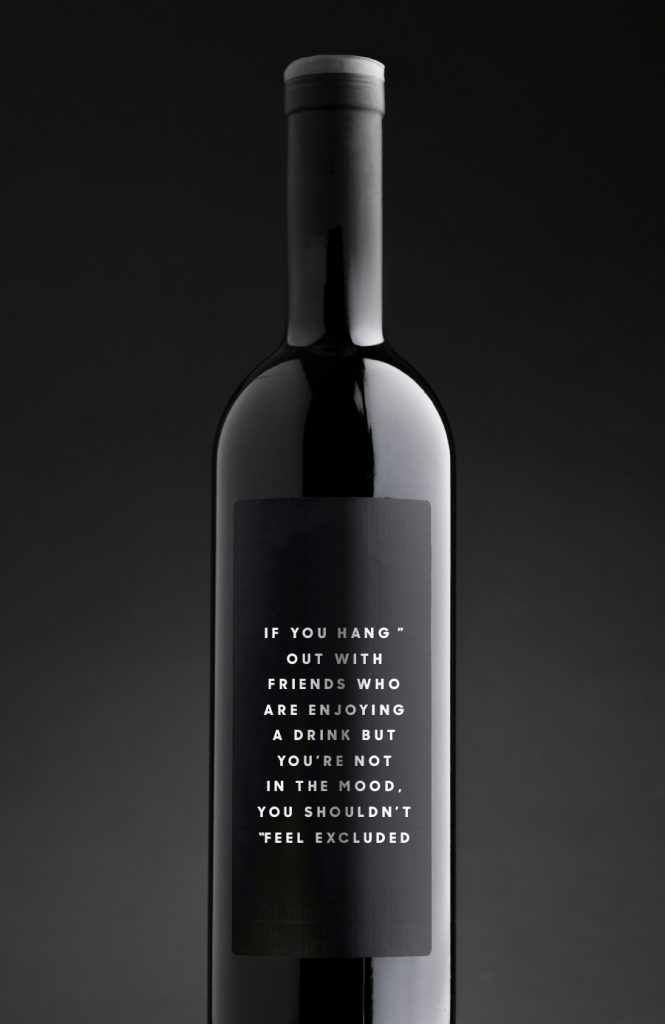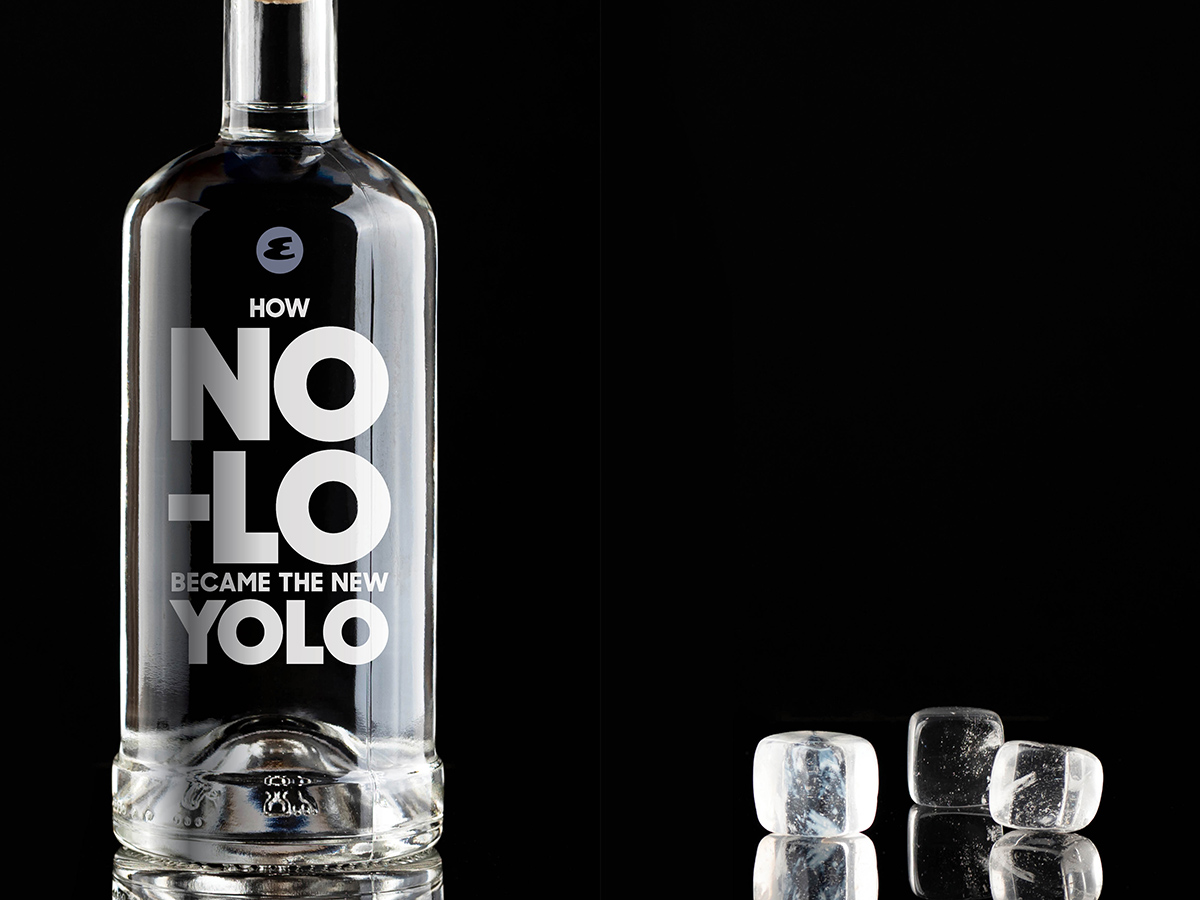I’m sitting in a sleek Dubai bar at 8pm on a Monday night. While the bartender mixes cocktails, customers are sipping elegant drinks and kicking back. Nobody is slurring their words, everybody is clear-eyed and in full command of their motor functions. This is NoLo, Dubai’s first non-alcoholic bar, which gets its name from a hybrid of the phrases ‘no adult beverage’ and ‘low worries’. It opened in July, latching onto the growing trend for crafted, premium, non-alcoholic spirits in the Middle East.
In my hand is a cold G&T made using Dry London Spirit from Lyre’s, a hip Australian brand of non-alcoholic spirits that is leading the way in this flourishing sector of the beverage industry. It’s zesty, zingy and rather refreshing. But I confess I’m missing that fuzzy warmth that my usual Bombay Sapphire gives me.
Named after the crafty Australian ‘lyrebird’, which imitates sounds such as car alarms and phone ringtones, Lyre’s wraps its pleasingly chunky bottles with vintage labels bearing animals in dapper clothing and eccentric messaging. The bottle of Dry London Spirit is adorned by a sketch of a pigeon wearing a top hat and monocle and carrying an umbrella. The label reads: ‘Why just last month as I was promenading with some colleagues in Trafalgar Square I got such a ghastly fright that my feet turned into trombones.’ When creating the labels, Lyre’s founder Mark Livings tracked down the stencil artist who drew the original American Express centurion. “He’s a maniac! He lives in London, is about 80 and he did quite a few of our drawings—we got a cool result,” smiles Livings.
Launched in 2019, Lyre’s non-alcoholic spirits are crafted from natural essences and extracts. Livings, an Australian entrepreneur, and his team created the range by slogging through “hundreds of iterations” in a process he describes as “art meets science.” After launching, Lyre’s entered six markets—UK, U.S., Hong Kong, Singapore, China and New Zealand —in just six months. “There’s level of anxiety in every start-up, but we knew we had a really great product,” he says.
“The same healthy lifestyle trends that were pushing things like almond milk instead of dairy, or vegetable protein instead of animal protein, I thought we would soon see in the alcohol space.”
– Mark Livings
His confidence came from a background in advertising and marketing where research indicated a growing global trend in a healthier lifestyle. “The data for things like alcohol consumption was way down, and it was clear that humanity was changing—that was a profound moment. The same healthy lifestyle trends that were pushing things like almond milk instead of dairy, or vegetable protein instead of animal protein, I thought we would soon see in the alcohol space.”
Part of Livings’ motivation for creating Lyre’s was his own experiences. “I’m the wrong side of 40, some of my behaviours in my 20s were self-destructive,” he says. “My hobby is being a musician in a pub band, which is an alcohol-saturated environment. I’m an entrepreneur and I knew I couldn’t achieve my business ambitions with that lifestyle.”
His core consumers are teetotalers, he says, but a significant number are people “dropping out of the alcohol category either entirely or for a period of time because of culture-specific trends like ‘Dry January’ or due to a commitment to a fitness regime for example. One in four people in the U.S. did Dry January in 2021. An extraordinary number of people are moderating their alcohol intake and are feeling great, thinking more clearly, being more productive at work and enjoying better sleep. But come Friday at 6pm they still want an adult beverage… only without the alcohol.”

If you’re reading this and are skeptical that non-alcoholic drinks could ever live up to the taste of their counterparts, Livings may convince you otherwise. In 2019 he entered Lyre’s non-alcoholic red vermouth containing 46 natural ingredients into Concours d’Spirits, a tasting competition at SommCon in San Diego, the beverage industry’s leading conference.
“There were no rules that said the vermouth had to contain alcohol,” Livings says with a mischievous grin, “I’m Australian and we don’t like rules very much.” Four master sommeliers and four industry journalists judged the vermouth category and Lyre’s won first prize and a double gold medal. What was the judges’ reaction when they were told the winning vermouth was actually non-alcoholic? “We blew some minds,” laughs Livings. “Some sommeliers laughed, others were furious.”
Livings has high hopes for the sector. “When I started, I thought it would just be pregnant women, and the medically or religiously abstinent [drinking his products]. But it got so much bigger.” He’s been touched by messages from customers thanking him for helping them deal with addiction, mental health issues or their weight. A shot of Lyre’s Dry London Spirit contains just five calories, compared to the 120 found in counterpart. Livings adds, “People are looking for balance and it’s led me to rethink what the potential of this category is going to be.”
SOBER CURIOUS
People curbing their alcohol consumption is a trend that’s been spotted recently by Dr. Saliha Afridi, a clinical psychologist and managing director of The LightHouse Arabia, a mental health and wellness centre in Al Safa, Dubai. She’s noticed the growth of those who label themselves ‘sober curious’ and are cutting out alcohol completely for their mental and physical health as well as for spiritual—not just religious—reasons.
As well as reducing the damage to our health, non-alcoholic drinks, she believes, are a helpful tool to avoid peer pressure. “People who choose to remain sober on a night out while their friends are intoxicated can struggle with feeling shamed or pressured to drink,” says Dr Afridi. “I have heard people say they have to explain why they are not drinking and push back on all the pressure, which does not make for a fun night out.” Others are switching to non-alcoholic drinks, she adds, because “they enjoy the taste but are not necessarily drinking for the buzz.”

She feels the first Covid lockdown in March 2020 was a turning point in the society of sobriety. “Many people drank during the early days of the pandemic for many reasons, from enjoying time at home with friends to coping with boredom or anxiety and the uncertainty of the times. As the pandemic continued, celebrities talked about being sober or sober curious. People were engaging with social media, where for the first time they were getting clear and digestible information about the damage it does to our mind and body. Coupled with the worldwide trends of increasing stress levels and deterioration of people’s mental health, this led to many people choosing to curb or cut out alcohol during the pandemic.”
After completing Dry January in 2016, Dubai PR executive Michael Lowden challenged himself to prolong his habit for another nine months. “Non-alcoholic beer plugs a really important gap in that it allows you to be part of a social group that goes out for a drink,” he says. “It’s great that so many places today have that option.” For Lowden, a crucial part of his enjoyment of drinking alcohol was the ritual. “It was ingrained in me that a drink after a long hike or a tough day at work was a reward, I’m not sure a non-alcoholic drink fully replaces that, but it is a start.”
BEHIND THE BAR
So while consumers may be convinced of a non-alcoholic option, what do the professionals say? Award-winning bartender Marco Semeraro is the bars manager at The Arts Club Dubai, which has been serving non-alcoholic spirits since May 2022. Who’s ordering them? “To be honest, it’s a vast range of people,” he explains. “Those who don’t drink for religious reasons; people who maybe had a heavy week and want to take it easy; people who are simply in the mood for a drink without the kick.”
For Semeraro and his team, mixing drinks with non-alcoholic spirits is exactly the same, each liquid “laying a foundation which we build on with syrup, juices and cordials.” Curiosity is growing among the private members club’s clientele. “My team tell me that more and more members are asking questions about non-alcoholic drinks and I believe this trend is growing all over world,” he says. “I arrived in Dubai two years ago and I’ve certainly seen an increase in demand here.”
But what about the taste? “I’m Italian, so I think nothing on the planet can replace Aperol,” he laughs. “But the flavour profile of the [Lyre’s] Italian Spritz that we serve here is pretty much the same. You feel like you’re having a spritz.”
Formerly the global bar development director of Zuma, Jimmy Barrat is a renowned bartender who has witnessed the rise of non-alcoholic brands in cocktail capitals around the world. In August 2022, the Frenchman founded high-end bar Ergo at The Dubai Edition.
When asked about non-alcoholic drinks, Barrat shifts the focus from consumers to his bartender brothers and sisters. “Awareness of mental health in the bartending world has risen over the past five years,” he begins. “The notion that working in nightlife meant there was a tendency to over-consume and perhaps put your health at risk, which is now a thing of the past. In my opinion, consumers feel the same.”
Life after the pandemic, he feels, has altered expectations of what constitutes a good night out. “Now, going out is about socialising more than anything else, and alcohol does not have to be part of the equation,” he says. Barrat echoes Dr. Afridi when he adds, “If you hang out with friends who are enjoying a drink but you’re not in the mood, you shouldn’t feel excluded. Unfortunately, that seems to be the case when your only options are club soda or juice. However, if the non-alcoholic cocktails look just as appealing, and have interesting flavour combinations, you suddenly feel part of the party.”
The challenge from a bartending point of view, he says, is how to avoid an overreliance on sugar. “Alcohol is a natural catalyst for flavours so, if you take it out, you need another substitute which is typically sugar, and that is where adjustments are needed by skilled bartenders,” explains Barrat. “The aim is to create a journey through flavours, mouth-feel and texture without adding excess sugar to everything.”
FILLING UP
As we enter Sober October, a health campaign to raise money for Macmillan Cancer Support, one company will be aiming to capitalise on the UAE’s thirst for non-alcoholic beverages. Drink Dry is the UAE’s first premium non-alcoholic drinks delivery business. Keen to maintain her healthy diet and fitness, but bored of drinking water with meals, founder Erika Blazeviciute Doyle discovered—and was impressed by—non-alcoholic drinks when she lived in Europe. After moving to Dubai, she couldn’t find as many options so came up with the idea of Drink Dry.
And then the pandemic hit.
“You’d think that everything would be put on pause when trying to create a drinks business, but it was the perfect moment to launch,” says Blazeviciute Doyle. “We all started cooking more at home during the lockdown and suddenly there was a lot of interest in how to make at-home dining more sophisticated.”
The growth of the sector has surprised Blazeviciute Doyle. “For a category that was ignored for so long, it amazes me how rapidly it’s growing,” she says. “At Drink Dry we have seen an increase of more than 150 percent against our numbers last year.”
In late 2021 Forbes reported that online sales of non-alcoholic and low-alcohol drinks rose by 315 percent in the U.S. over the previous 12 months. A survey by dating app Hinge found that 75 percent of Gen Z users said having an alcoholic drink was no longer their go-to choice for a first date. In 2019, the food and drink consultancy CGA reported that the non-alcoholic spirits industry had experienced a 418 percent growth in sales. Sales of non-alcoholic beer are also rocketing with The Business Research Company predicting growth from $16.6 billion in 2021 to $18.2 billion in 2022. By 2026 Global Market Insights Inc expect the global non-alcoholic beer market to be worth more than $29 billion.
LAST CALL
I finish my second non-alcoholic G&T at NoLo and drive home with a clear head, happily knowing that I’ll wake up without the dreaded furry tongue that comes from over imbibing.
The thirst for non-alcoholic drinks is undoubtedly growing, which is good news for the wellbeing and waistline of the millions of people who drink them, but I doubt the alcohol industry is feeling worried. Just as drinkers and sober people can rub shoulders on neighbouring bar stools, so too can non-alcoholic drinks happily share a shelf with their alcoholic relatives.

